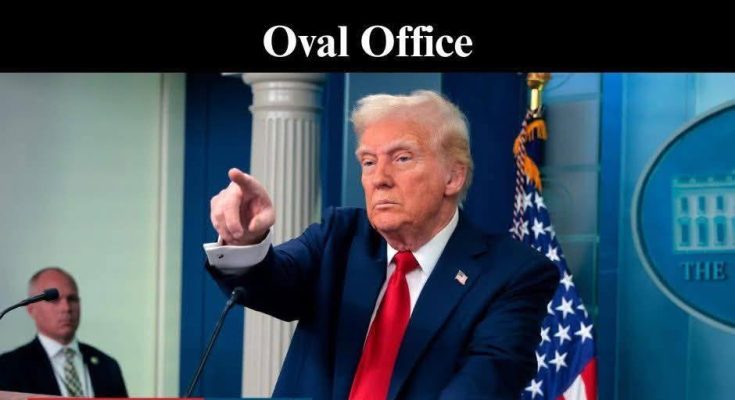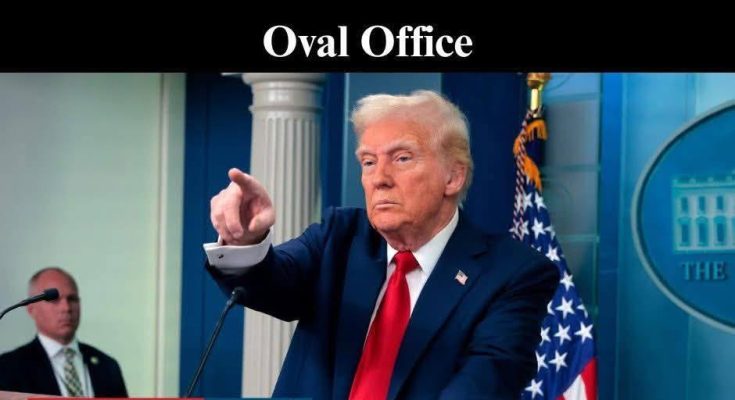
Trump Revokes Security Clearances of Former Cybersecurity Officials Amid Federal Investigations and Renewed Election Integrity Debate
In a controversial and unprecedented move, former President Donald J. Trump has issued a sweeping directive to revoke the security clearances of two prominent former Department of Homeland Security (DHS) officials — Christopher Krebs, the former director of the Cybersecurity and Infrastructure Security Agency (CISA), and Miles Taylor, a former DHS chief of staff — triggering a firestorm of debate across political, legal, and national security circles.
The move, outlined in a newly issued Presidential Memorandum, represents one of the most significant post-administration actions taken by a former president against former federal officials. The memorandum calls for the immediate termination of existing security access for Krebs and Taylor and outlines further investigative steps into their conduct during their tenure in federal service. In addition to the revocations, the memo expands scrutiny to include third-party entities and academic institutions connected to both men.
White House staff secretary Will Scharf, acting as a spokesperson for the former president, said during a press conference at Mar-a-Lago that the action stems from internal assessments suggesting possible misconduct or compromised judgment by Krebs and Taylor during their time in government. “This action addresses more than just administrative access — it initiates a full-scale review of activities that may have compromised trust in the federal apparatus,” Scharf stated. “No individual is above national accountability, regardless of rank or reputation.”
Krebs: A Central Figure in 2020 Election Integrity Battle
Christopher Krebs rose to national prominence in 2020 during one of the most volatile election cycles in modern U.S. history. As head of CISA — the agency responsible for safeguarding critical infrastructure including election systems — Krebs was tasked with coordinating cyber defenses and monitoring misinformation related to the electoral process. Following the presidential election, CISA released a now-famous joint statement with election officials declaring that “the November 3rd election was the most secure in American history.”
Krebs’ public defense of the election’s integrity directly contradicted President Trump’s repeated and unsubstantiated claims of massive voter fraud. Within days, Trump responded by terminating Krebs via Twitter, alleging insubordination and accusing him of making a “highly inaccurate” statement. The dismissal drew widespread backlash from bipartisan lawmakers and the cybersecurity community, who praised Krebs for his adherence to evidence-based conclusions in the face of political pressure.
Now, years later, Trump’s executive action reopens that chapter — not only rescinding Krebs’ access to classified materials but also mandating the suspension of clearances for employees at cybersecurity firm SentinelOne, where Krebs now serves as an advisor. According to the memorandum, federal investigators have been tasked with exploring whether former government officials like Krebs are leveraging security-related knowledge or networks in a manner deemed inconsistent with U.S. national interests.
Miles Taylor: From Anonymous Insider to Outspoken Critic
Miles Taylor first entered the national spotlight in 2018 when he anonymously authored a bombshell New York Times op-ed entitled “I Am Part of the Resistance Inside the Trump Administration.” The piece, which described internal efforts by government officials to “thwart parts of [Trump’s] agenda,” sparked a nationwide conversation about loyalty, whistleblowing, and the limits of executive authority.
Taylor later confirmed his authorship in 2020, shortly before the election, and began working publicly as a political commentator and policy analyst. Since then, he has become an outspoken critic of Trump, frequently appearing in media to discuss the internal dysfunction he witnessed during his time in the administration.
The new memorandum targets not only Taylor’s personal clearance but also directs the suspension of clearances for individuals working alongside him at the University of Pennsylvania, where he now holds an academic position. Trump labeled Taylor’s conduct “deeply dishonest and destabilizing,” arguing that his actions — both during and after his tenure — warranted a full-scale national security review. “No one who undermines their oath to the Constitution should be entrusted with privileged access to classified material,” Trump declared during the signing ceremony.
Expanding the Scope: A Broader Campaign Against Former Officials
The sweeping nature of the executive action has alarmed both civil liberties advocates and legal scholars. Beyond Krebs and Taylor, the memorandum includes language that could apply to “any individuals or organizations collaborating with or benefiting from the actions of the named parties.” Analysts say this could signal future revocation attempts targeting journalists, nonprofit organizations, and tech companies that worked with or published statements from the former officials.
“The vagueness of this order is deeply troubling,” said Dr. Allison Greene, a national security law professor at Georgetown University. “If the justification is national interest, the question becomes: who defines that interest? This opens the door to political retribution masquerading as administrative oversight.”
Several former intelligence officials expressed similar concerns, warning that weaponizing clearance revocation against political critics could set a dangerous precedent. Former CIA Acting Director Michael Morell called the move “deeply corrosive to democratic institutions,” arguing that clearances are a national asset — not a political reward.
Election Security and the Gabbard Factor
The timing of the action has further raised eyebrows, especially as election security becomes a renewed national issue ahead of the 2026 midterm elections. In a related briefing, Director of National Intelligence Tulsi Gabbard made headlines when she warned of “ongoing vulnerabilities in the digital infrastructure of American elections.” Though she did not cite specific threats or entities, her remarks suggested that U.S. intelligence agencies are currently tracking potential breaches or weaknesses in voting systems.
“The American people deserve full transparency when it comes to the security of their votes,” Gabbard said. “We’ve seen attempts by foreign and domestic actors to influence public perception and technological outcomes. There is more to be done to ensure resilience.”
Some political observers see Gabbard’s involvement as a strategic alignment between former Trump loyalists and independent national security voices seeking to reshape the post-2020 election narrative.
Legal and Political Fallout: What Comes Next?
As of this writing, neither Krebs nor Taylor has issued a formal public response to the revocation orders, though sources close to both suggest legal challenges may be imminent. Civil rights organizations such as the ACLU and National Security Counselors have indicated they are closely monitoring the situation for potential constitutional violations.
Legal experts expect court battles to center on whether a former president holds standing to initiate security clearance revocations, or whether such powers reside solely with the sitting executive and relevant federal agencies. The broader implications for future administrations are substantial, as the precedent could enable politically motivated purges of government personnel even years after leaving office.
Meanwhile, political allies of Trump have praised the memorandum as a long-overdue reckoning. “We must protect our national secrets from those who abuse access for personal or political gain,” said Rep. Marjorie Taylor Greene in a statement posted to social media.
Conclusion: A Nation Still Divided
The revocation of security clearances from Chris Krebs and Miles Taylor is more than an administrative action — it is a flashpoint in the ongoing ideological battle over truth, loyalty, and the legacy of the Trump administration. With national security, academic freedom, and electoral trust now tangled in the same debate, the country finds itself once again asking: where is the line between safeguarding national interests and suppressing dissent?
The coming weeks will reveal whether this is a singular political maneuver or the opening salvo in a broader campaign to redefine the boundaries of power, access, and public accountability in the post-Trump era.



